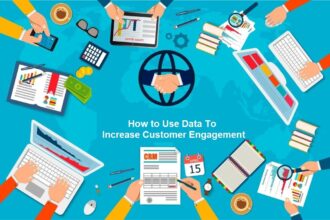On the shelves in the business section of any bookstore are numerous books about leadership and management. I have never considered myself to be a motivational writer or speaker who describes the importance of executives rallying the work force with inspiration. My interests are more with equipping managers and employee teams to help their organizations be better, faster, cheaper and smarter.
On the shelves in the business section of any bookstore are numerous books about leadership and management. I have never considered myself to be a motivational writer or speaker who describes the importance of executives rallying the work force with inspiration. My interests are more with equipping managers and employee teams to help their organizations be better, faster, cheaper and smarter.
Now I am increasingly raising the topic of leadership because in my career I have seen examples of leadership styles that reflect individual desire for power more than a duty to improving organizational performance.
Muscle or brain? Strength or smarts? I choose the latter in both cases. But how is this finessed to align employee behavior, projects and priorities with the executive team’s strategic objectives?
Analytics-based enterprise performance management
The primary source for improvements in organizational effectiveness and decision making is shifting toward the use of analytics of all flavors. Traditional approaches – like 1980s management by objectives (MBOs), bullying employees, and hollow wall banners of rhetoric (“Quality Comes First”) – are being superseded by deploying and integrating business analytics into accepted enterprise performance management methodologies. Examples of business analytics are correlation analysis to understand causal relationships and regression for forecasting. Performance management methodologies include the balanced scorecard, risk management and customer profitability reporting.
Applying business analytics from the CEO’s office to each employee’s desktop enables an organization to frame and solve complex business problems, manage performance to achieve measurable objectives with targets, drive sustainable growth through innovation, and anticipate and manage change.
Having a foundation for business analytics is important too. My personal bias of converting insights into action often makes me forget that many organizations have issues with data quality and with disparate and nonstandard data sources. Organizations will continue to have problems with all of the data they are collecting. Even if their source data has high integrity and is accessible, it still takes time and effort to run reports and get them to the relevant people and additional time for those people to tell the relevant systems what to do, assuming the right systems are in place. Data integration and management – plus techniques like extract, transform and load (ETL) – can be prerequisites for analytics-based performance management.
The emergence of predictive analytics
One particularly powerful flavor of analytics is predictive analytics. Applying predictive analytics results in making proactive, forward-looking decisions that go beyond simple query-and-reporting questions like “What happened?”, “How many?” and “How often?” to answer high-impact questions like “Why did it happen?”, “What will happen next?” and “What is the best that can happen?”
A recent survey by the consulting firm Accenture reported that most companies are far from where they want and need to be when it comes to implementing analytics. They are still relying on intuition and gut feeling, rather than fact-based data, when making decisions. What is needed today is the seamless integration of managerial methodologies such as balanced scorecards, strategy maps, budgets, activity-based costing (ABC), forecasts, customer relationship and value management, and resource capacity planning. Each methodology should be embedded with business analytics, especially predictive analytics.
Overcoming natural resistance to change
What major barrier continues to obstruct the adoption rate of enterprise performance management methodologies? The barriers are social, behavioral and cultural. There are many examples of this obstacle, including people’s natural resistance to change; not wanting to be measured or held accountable; fear of knowing the truth (or of someone else knowing it); reluctance to share data or information; and “we don’t do that here.”
The reality, though, is few of us, if any, have training or experience as organizational change management specialists. We are not sociologists. We are not psychologists. And neither are many executives in leadership positions. However, we are learning to become change management practitioners.
I credit the New York Times op-ed columnist Maureen Dowd for my title. Her column “Less Spocky, More Rocky” described politicians; but when I applied this title to mission-directed organizations, like yours, I swapped the two names. I would prefer to have an organization with Star Trek’s Spock-like logic and analytical skills than one like Rocky Balboa, punching meat carcasses in the freezer.








